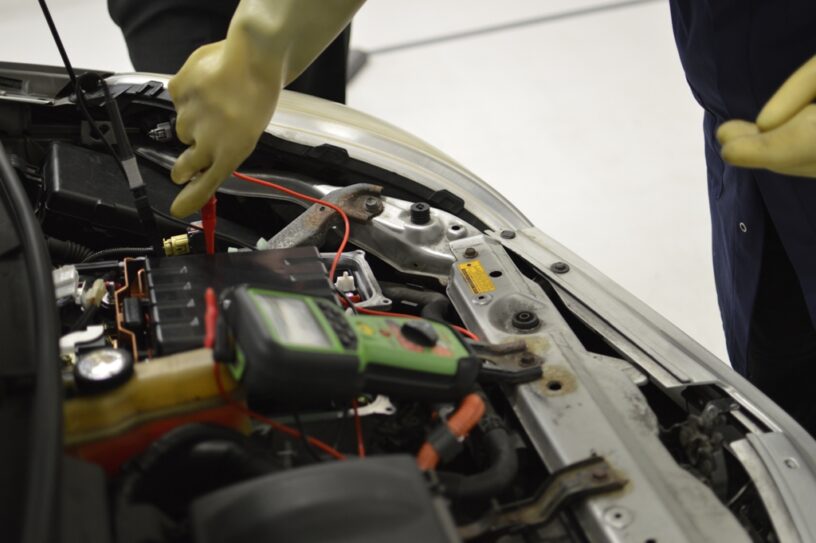The British Motor Show will showcase the best, the fastest and the most innovative in automotive technology this weekend. And electrified vehicles will take centre stage. But data from the Institute of the Motor Industry (IMI) clearly shows that the automotive retail sector does not currently have the skills and the pipeline of talent needed to service and repair electrified vehicles to keep the nation moving safely. The last eighteen months have only served to put the sector into reverse in getting itself EV-ready.
Faced with the potentially fatal consequences of an inadequately skilled workforce, the IMI is repeating its plea for the government to commit funding to support EV skills training. It is suggesting a £15m boost would play a critical role, contributing towards training for up to 75,000 techniciansi .
In the context of the £1.9bn investment committed by government in the 2020 Spending Review to supporting the transition to zero emission vehicles for charging infrastructure and consumer incentivesii , the IMI believes this is a modest figure. It would make a significant difference, particularly for the independent sector which doesn’t have the training budgets of the manufacturer franchise network and faces being left behind, with the result that consumers will have less choice.
“It is tremendously exciting to be involved in this weekend’s British Motor Show where the best in class in our sector will be on showâ€, said Steve Nash, CEO of the Institute of the Motor Industry. “But whilst the show will provide a real buzz for the future of electrified motoring, there’s no getting away from the fact that there are still some big hurdles to overcome to meet the government’s 2030 deadline for the ban of the sale of new petrol and diesel vehicles.
“With just 6.5% of the automotive workforce currently qualified to work on electric vehicles there is a gaping chasm in the availability of technicians. And that chasm not only presents a safety threat for those who may risk working on high voltage vehicle systems without appropriate training and qualifications; it also means the premium on skills could add to costs for motorists, creating another, unnecessary deterrent to the switch to EV.
“The government has committed £1.9bn to tackling consumer uptake and charging issues. We are asking that £15m is set aside for employers to access to support their own investment in skills training to get their workforce EV-ready. This will be particularly important for the independent sector.â€
IMI data:
At December 2020, 6.5% of UK automotive workforce are qualified to work on electric vehicles – based on a total technician workforce of 237,939 of which 15,428 are registered on the IMI techsafe Register (accredited to work on electric vehicles)
That’s 15,428 technicians to work on an electric car and van population currently in excess of 380,000
It is estimated that the electric vehicle population will accelerate to 12.7miii  in the next decade – in order to safely maintain that number of vehicles, the UK will need around 75,000 technicians with the skills to work on evs
Research of the automotive industry in early 2021 highlighted that 92% of respondents believe it is extremely or very important to invest in EV training for meeting the challenge of the 2030 deadline
“Working on any form of electrified vehicle requires a completely different set of skills to those needed to work on a petrol or diesel vehicleâ€, added Steve Nash. “Without those skills, serious injury or death is a very real prospect. And we’ve got just over 8 years to have a sector that is EV-ready.â€
“The British Motor Show will illustrate that this is a tremendously exciting sector to be working in with the new technologies – Electric, Advanced Driver Assistance Systems (ADAS) and Connected – becoming more widely accepted by motorists. But while there’s a scarcity of those with the skills, motorists will be concerned about being able to get their vehicle serviced or repaired; and whether they might have to pay a premium for that service.â€
“The government wants the adoption of EV to continue at a pace – the investment in EV charging needs to be matched by an investment in EV skills training to help employers ensure the workforce is EV-ready and electrified motoring doesn’t come at a premium.â€
*Article Source http://www.motor.org.uk








